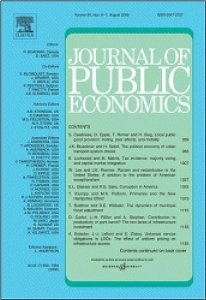
Chevalier, A. and Marie, O. (2024). Risky moms, risky kids? fertility and crime after the fall of the wall Journal of Public Economics, 230:.
-
Affiliated author
-
Publication year2024
-
JournalJournal of Public Economics
Following the collapse of the Berlin Wall, the birth rate halved in East Germany. Using detailed state-cohort-level arrest-data, and a difference in differences strategy, we show that individuals born during this period of socio-economic turmoil were markedly more likely to be arrested than those conceived a few years earlier. This is the case for most crime types and both for boys and girls. Since these children grew-up in the same re-unified German environment, the differences in criminal activity are consistent with negative parental selection. We use individual-level data to highlight risk attitude as a potential mechanism linking maternal fertility decisions and children's criminal activities. We show that mothers who gave birth between 1991 and 1993 in East Germany have a significantly greater preference for risk, and so do their children. Finally, we provide novel evidence of the strong correlation between high levels of risk preference and criminal participation.